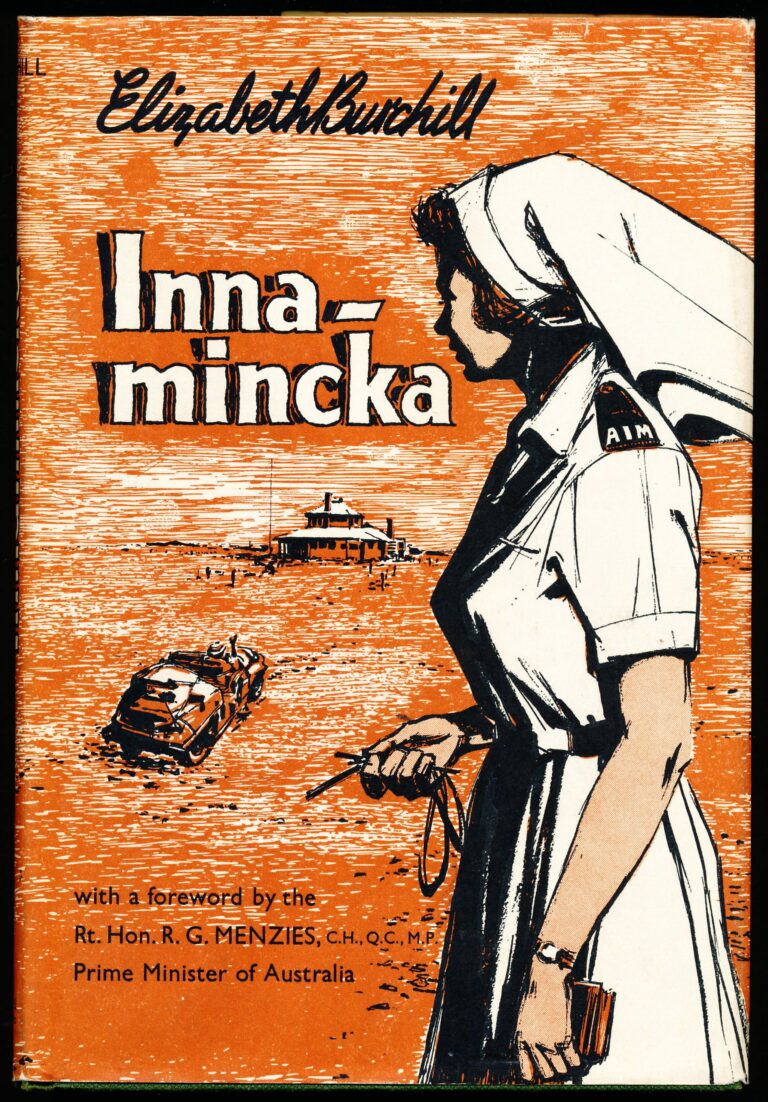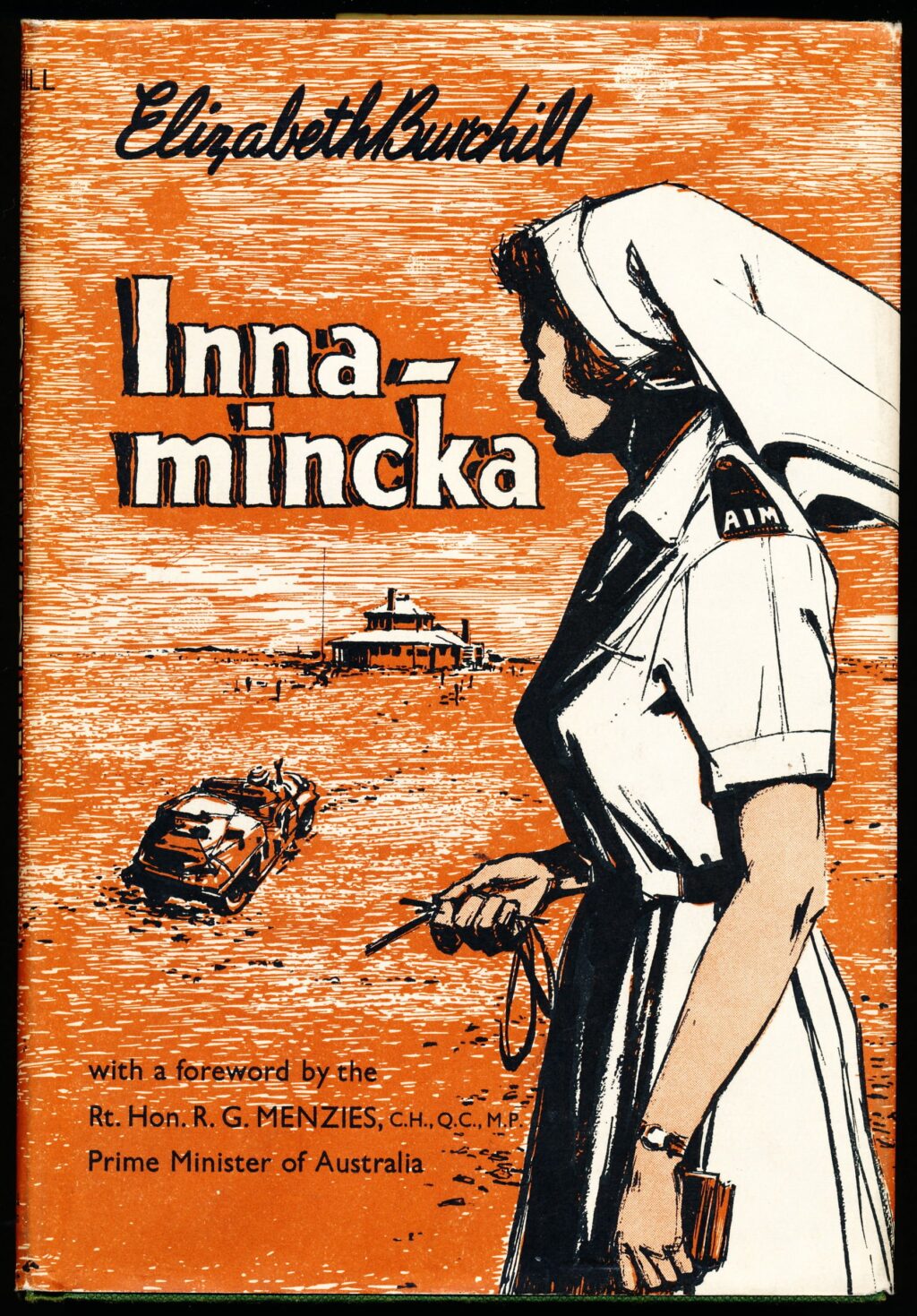Elizabeth Burchill, Innamincka (1960)
Having grown up in the remote township of Jeparit in the Western Districts of Victoria, Robert Menzies was always passionate about celebrating Australia’s pioneers who had helped to conquer a harsh and unforgiving land. In the early 20th century, heroic tales of Matthew Flinders or Burke and Wills were far more commonly told than they are today. But even back then there were stories that tended to be neglected, and many of these involved the pioneering efforts of Australian women.
Innamincka is a remote South Australian township built nearby where explorer Robert Burke was laid to rest by the town’s water source, Cooper Creek. But it was also home to some of the amazing work of another Australian pioneer, Elizabeth Burchill OAM.
Born in Melbourne in 1904, Burchill began training as a nurse in her early 20s, and joined the Australian Inland Mission. Stationed out of Innamincka she would provide vital midwifery and other essential services to those in the area – using the radio, which acted as the town’s only beacon to the wider world, to call in the flying doctors for what the nurses could not provide on their own. Such was the remoteness of the town that when Burchill first boarded the train at Adelaide and told the conductor of her destination, he exclaimed:
‘What! Innamincka! Whatever are you’se kids going to do in that forsaken place! You might as well be dead!’
After several years working at the Innamicka Nursing Home, which functioned as the area’s ‘hospital, church, open house, post office, and library’, in the mid-1930s Burchill would travel to Britain to further her nursing studies. There she saw a sign which read ‘WANTED – NURSES FOR SPAIN’, and so Burchill was once again off to a hostile environment, this time tending to the often malnourished child victims of the Spanish Civil War. This experience of nursing in a time of conflict would prove invaluable when the Second World War broke out and Burchill’s services were needed by her countrymen.
The Australian War Memorial records that ‘she enlisted in the Australian Army Nursing Service on 21 December 1939. She embarked for the Middle East in April 1940 and was assigned to 2 Australian General Hospital (2 AGH). She also served with the British 61st General Hospital (based at Nazareth). In December 1940, 2 AGH transferred to Kantara, Egypt, where casualties from the Western Desert fighting, the Greek Campaign and the invasion of Crete were treated. Although promoted to Captain, Burchill felt her skills were not recognised and applied for a transfer. She was discharged on 3 October 1941. She returned to Australia in late 1941 aboard the troopship Queen Mary in company with 800 Italian prisoners bound for Australian POW camps. Burchill then worked as Sister-in-Charge of Heidelberg Military Hospital for a year; managed the Medical Aid Post at Toorak, an Australian Army Women’s Service training centre, and completed the war as Night Supervisor of 106 Army Hospital at Bonegilla, Victoria.’
After the war was over, Burchill worked briefly as a radio announcer before being drawn back to her vocation of nursing in remote communities. She also began to write of her experiences and those of her colleagues, eventually being awarded an Order of Australian Medal for ‘service to nursing, particularly as an historian, author and philanthropist’.
But when Burchill was still starting out as a historian, she reached out to Prime Minister Robert Menzies to write a foreword for one of her first books and thereby help it to garner the attention it deserved. Ever keen to boast of and commemorate the work of a ‘lifter’, Menzies was happy to oblige:
‘No country can become great without great pioneers. Our own land throughout its short and progressive history has had many pioneers, and the fruits of their work are now being shared by us all. The spirit which has achieved greatness for our nation is exemplified in the work of the Sisters of the Australian Inland Mission.
Through Sister Burchill, may I humbly pay my tribute to the devotion, ability and self-sacrifice of all the Sisters of the Australian Inland Mission.
“Innamincka Sisters” gives a pen picture of their work, hitherto so little publicised. We in Australia owe much to them and, with the blessing of God, may their work continue in the highest traditions of our great Australian nursing service.’
Sign up to our newsletter
Sign up for our monthly newsletter to hear the latest news and receive information about upcoming events.



